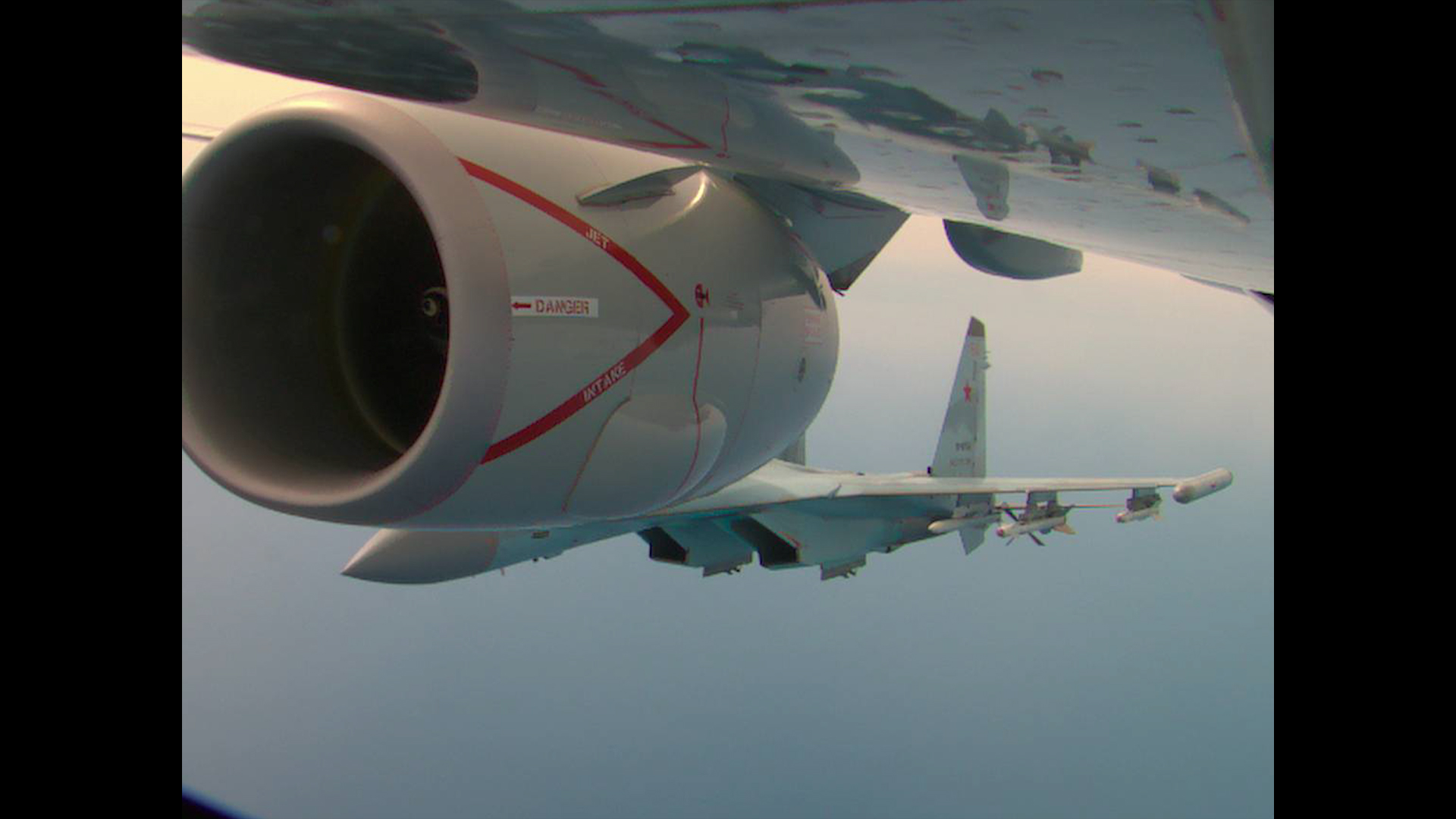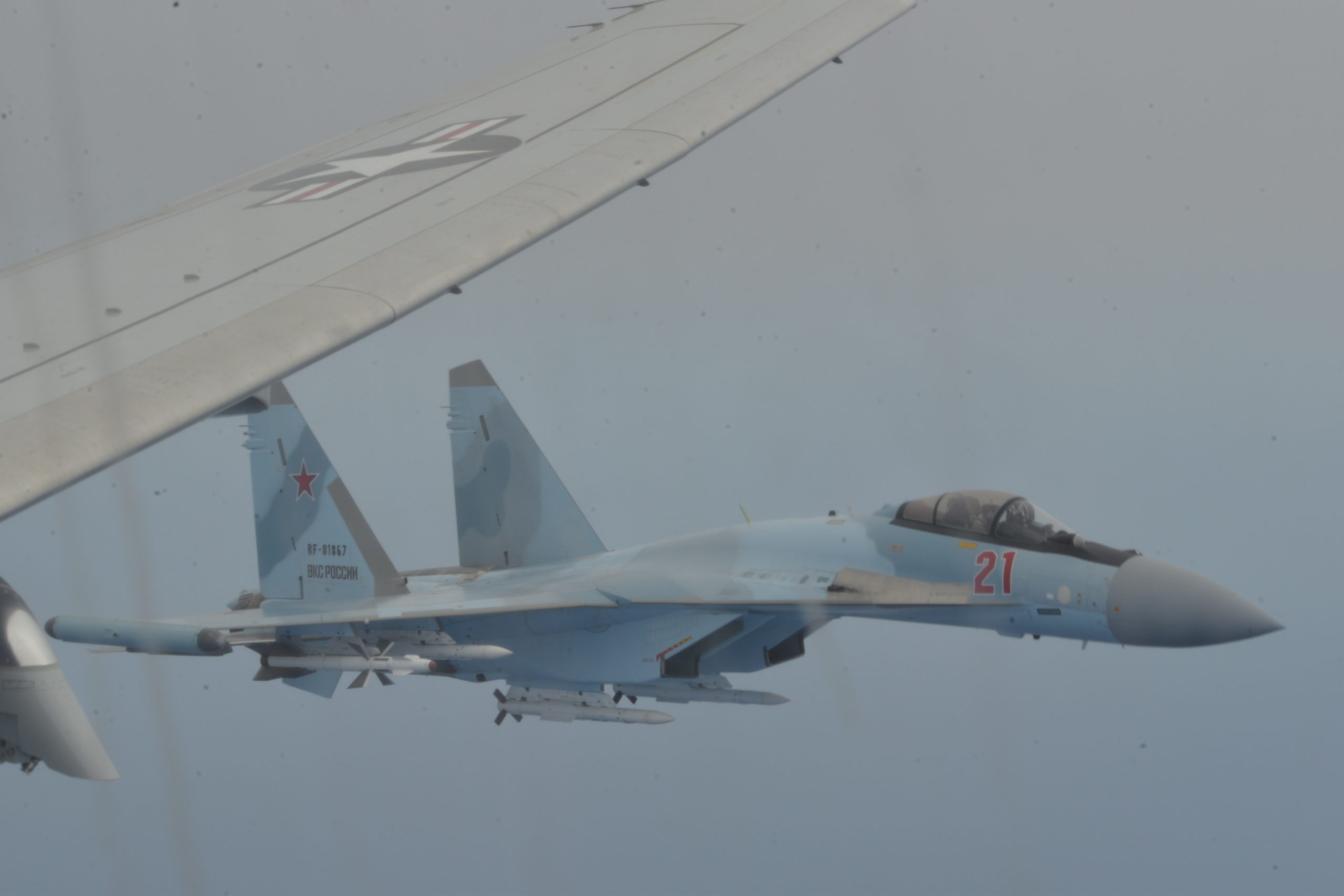Russian Su-35 fighters unsafely intercept U.S. Navy P-8A Poseidon patrol aircraft
Posted on
U.S. Naval Forces Europe-Africa has confirmed that two Russian Su-35 fighter jets flew in an unsafe and unprofessional manner while intercepting a U.S. Navy P-8A Maritime Patrol and Reconnaissance Aircraft over the Mediterranean Sea.
On Tuesday, the service press release said that a U.S. Navy P-8A aircraft was flying in the Eastern Mediterranean over international waters and was intercepted by two Russian Su-35
aircraft over a period of 65 minutes. The intercept was determined to be unsafe and unprofessional due to the Russian pilots taking close station on each wing of the P-8A simultaneously, restricting the P-8A’s ability to safely maneuver.
The unnecessary actions of the Russian Su-35 pilots were inconsistent with good airmanship and international flight rules, and jeopardized the safety of flight of both aircraft.
While the Russian aircraft was operating in international airspace, this interaction was irresponsible. We expect them to operate within international standards set to ensure safety and to prevent incidents, including the 1972 Agreement for the Prevention of Incidents On and Over the High Seas (INCSEA). Actions like these increase the potential for midair collisions.
This incident follows two unsafe interactions in April, over the same waters. In all cases, the U.S. aircraft were operating in international airspace, consistent with international law, with due regard for safety of flight, and did not provoke this Russian activity.


Tensions between Washington and Moscow increased again amid deployment of Russian military aircraft to Libya.
Russian military aircraft, including Mig-29 Fulcrum fighter jets and Sukhoi Su-24 Fencer combat aircraft, were recently deployed to Libya in order to support Russian state-sponsored private military contractors (PMCs) operating on the ground there. At least “six Mig-29 and two Su-24 aircraft escorted by two Russian Air Force Su-35s” have arrived in Libya.
Russia has employed state-sponsored Wagner in Libya to conceal its direct role and to afford Moscow plausible deniability of its malign actions. U.S. Africa Command assesses Moscow’s military actions have prolonged the Libyan conflict and exacerbated casualties and human suffering on both sides.
Subscribe to our newsletter
Promotions, new products and sales. Directly to your inbox.
